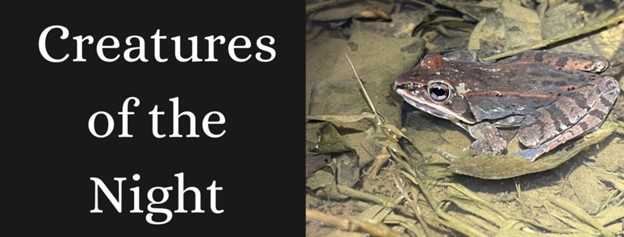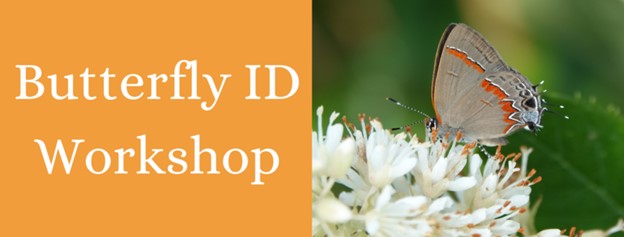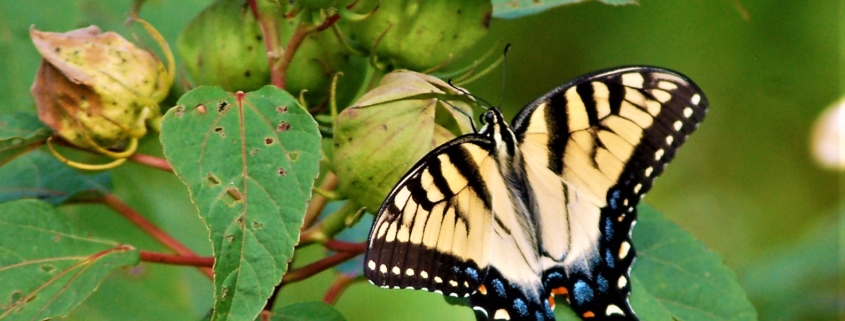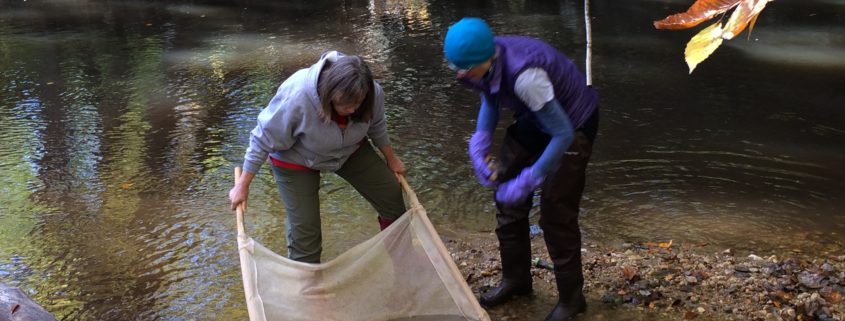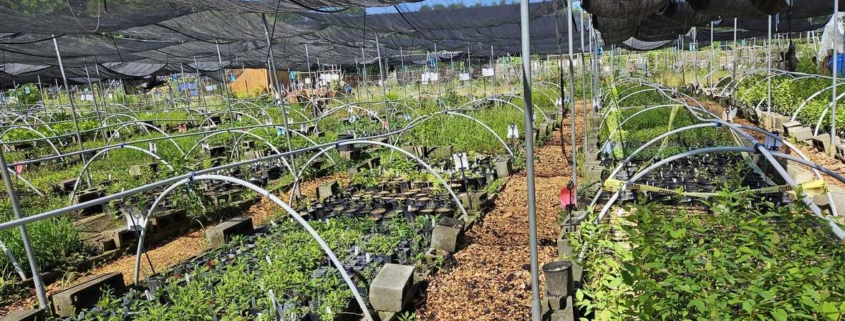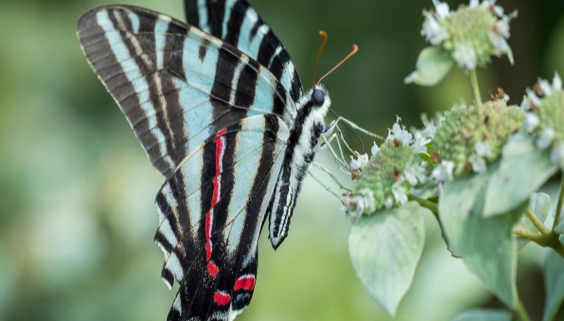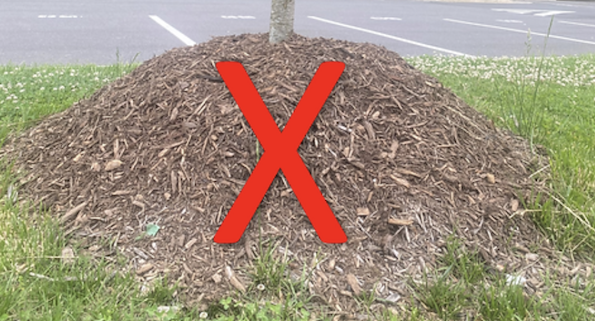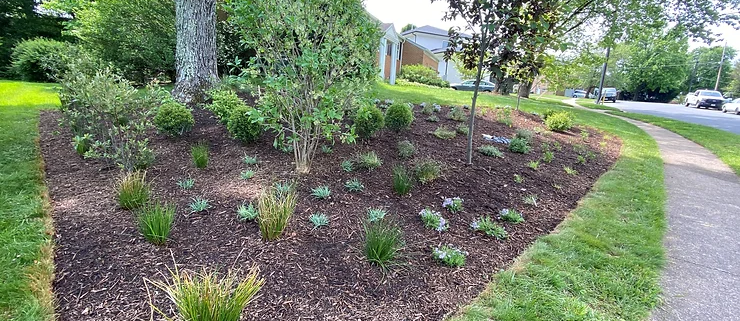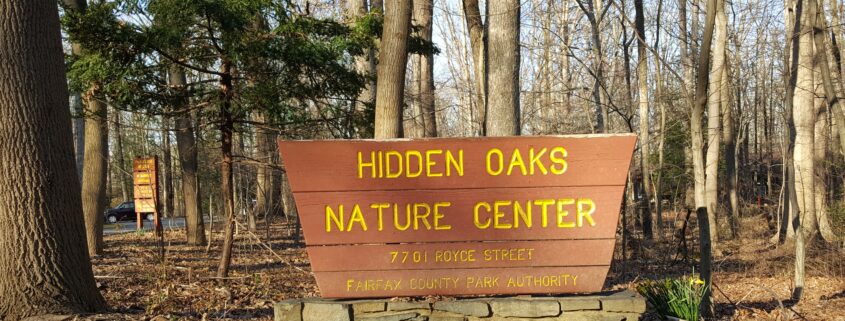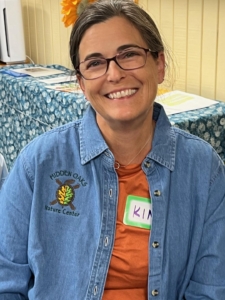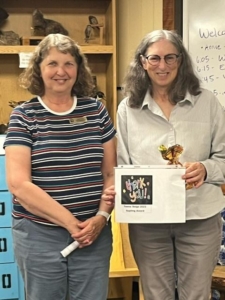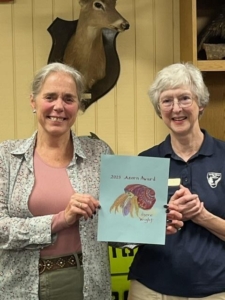If you grew up in suburbia, a pristine lawn was a welcome herald of spring. Everyone enjoys the smell of freshly mowed grass and the look of a well-kept, manicured lawn. So what, you might wonder, is the problem with turfgrass? After all, it is a green, living plant, busily photosynthesizing carbon dioxide and water into oxygen and glucose, while providing an even surface to walk and play on. But not all is as it seems.
No one has taught us more in recent years about the negative impact on biodiversity of sterile suburban and urban landscapes than Dr. Douglas Tallamy, an ecologist, conservationist, and Professor of Entomology at the University of Delaware. Experimenting for decades on his own ten-acre home in Oxford, Pennsylvania, he eliminated turfgrass and planted native flowers, shrubs, and trees, which vastly increased the kinds and number of caterpillars, birds, frogs, and other critters living there. From this experience, he formed and shared a new understanding of how turfgrass, a staple feature of American suburbia, diminishes biodiversity.
The grasses we use for turf, even varieties with names like “Kentucky Bluegrass”, are not native to America. Lawn grass has a long history in Europe that extends back to the Middle Ages. To this day, the species of turfgrass planted in the U.S. are native to Europe, and like all non-native plant species, they do next to nothing to support our local wildlife.
Turfgrass now covers an estimated 40 million acres in America, acting like corn or other farmed monocultures that have replaced the more diverse habitats that supported far more local wildlife. To add insult to injury, we keep it alive using fossil fuels for mowers and leaf blowers and by adding toxic chemicals that harm plants and animals. Useful and attractive as it may be, turfgrass impoverishes the environment. In addition, turfgrass absorbs far less run-off than one would think. Rain washes over it but doesn’t penetrate to any significant depth. It therefore contributes to an abnormal volume of stormwater runoff that pollutes and erodes our streams and rivers and ultimately damages the Chesapeake Bay.
Converting even some of the 40 million acres of turfgrass to more natural habitats would benefit the environment while also supporting a host of pollinators and other wildlife. Doug Tallamy is optimistic that if we reduce the acreage by half, we will essentially reestablish our country’s biodiversity.
One strategy to reduce turfgrass, or at least to make it more habitable for local insects, has recently attracted a lot of interest: No Mow May. The movement began in 2019 as the brainchild of Plantlife, a United Kingdom conservation charity. The idea was to refrain from mowing the lawn for the entire month of May to promote the growth of more flowering weeds and thereby induce more pollinators and other wildlife to stop and stay a while. As the idea spread to America and gained popularity, researchers at Lawrence University conducted a study that supported Plantlife’s theory that more bee species were visiting the un-mowed lawns when compared to nearby public lands that were being mowed throughout the month. The study gained national attention and resulted in the adoption of No Mow May across America in several jurisdictions.
However, the majority of our common weed species are non-native and therefore provide minimal benefit beyond nectar. The Lawrence University study was later retracted due to “several potential inconsistencies in data handling and reporting.” In addition, some critics of No Mow May, including Doug Tallamy, raised concerns that providing a safe haven that is so temporary might actually be harmful. For the moment, it is unclear if there is any boost to biodiversity from a No Mow May strategy alone.
What is clear is that planting a permanent pollinator sanctuary with native species, especially in place of existing turfgrass, is effective. Such an endeavor will benefit many pollinators and caterpillars over the entire growing season while also chipping away at the amount of turfgrass in our suburban and urban settings. It’s a win-win for all.
The task of creating a healthier environment seems big, but small efforts by many people can add up. If we shrink the lawn by converting even a modest patch of existing turfgrass to native plantings, we will have improved the food web and biodiversity of our yard – and that is no small matter. For ideas on how to go about it, see the Plant NOVA Natives website.


